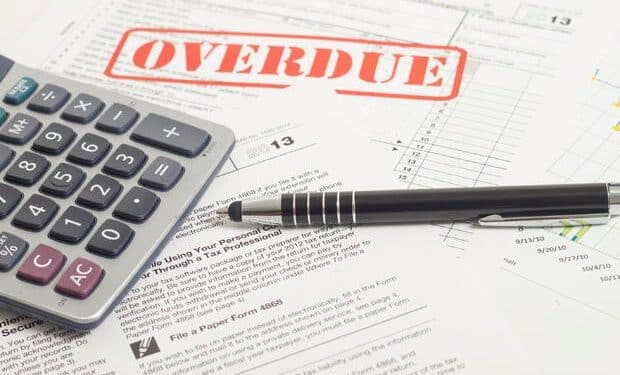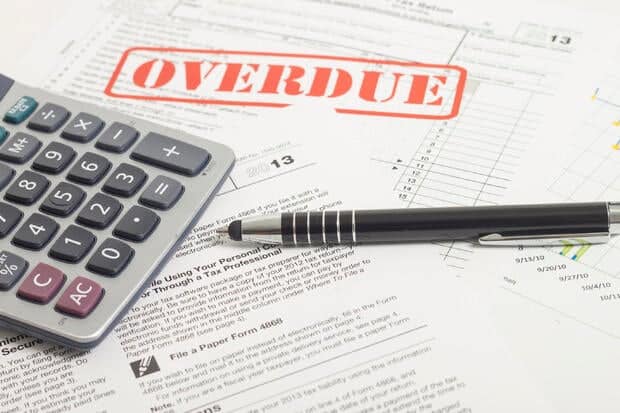Getty Images/iStockphoto
If you’ve ever been hit with an unexpected tax bill from the Internal Revenue Service (IRS), you know how frustrating and stressful it can be. Owing money to the IRS is no small matter, as it can come with penalties that compound and become a significant financial burden over time. Still, each year, millions of Americans find themselves in a situation where they’ve missed a tax payment deadline or made an error on their return.
What many taxpayers don’t realize, though, is that the IRS offers a few different programs designed to help taxpayers who have made honest mistakes or faced circumstances beyond their control. One of the most valuable yet lesser-known options is referred to as “one-time forgiveness.” This program can provide substantial relief to taxpayers who have otherwise maintained a clean tax record.
If you’re behind on your tax payments, understanding this program can be the difference between paying hundreds or even thousands of dollars in penalties and getting a fresh start with the IRS. So, what exactly is one-time forgiveness from the IRS, and who qualifies for this type of help? That’s what we’ll detail below.
Check your tax debt forgiveness qualifications online today.
What is one-time forgiveness from the IRS?
One-time forgiveness, officially known as First-Time Penalty Abatement (FTA), is an IRS program that allows qualified taxpayers to have certain penalties removed from their tax accounts. The program essentially gives taxpayers who have a history of compliance a one-time pass on penalties that may have accrued due to an oversight or unforeseen circumstance, and the relief primarily applies to three types of penalties: failure-to-file, failure-to-pay, and failure-to-deposit penalties.
What makes this program particularly valuable is that it can save taxpayers significant amounts of money. For example, the failure-to-file penalty can be as high as 5% of unpaid taxes for each month a return is late, up to 25% of the unpaid taxes. And, the failure-to-pay penalty, while lower at 0.5% per month, can still add up considerably over time. By having these penalties abated through the FTA program, though, taxpayers can potentially save thousands of dollars.
It’s important to note that one-time forgiveness only applies to penalties, not the underlying tax debt itself. Taxpayers who take advantage of one-time forgiveness are still responsible for paying any taxes owed, along with the interest that has accrued on the unpaid balance. The IRS charges interest on both the unpaid tax and penalties, and this interest continues to accrue even if penalties are removed through the FTA program.
Find out how a tax relief service could help lower your tax bill.
Who qualifies for the IRS one-time forgiveness program?
Qualifying for one-time forgiveness isn’t automatic, but the criteria are relatively straightforward. To be eligible, taxpayers must meet several key requirements:
- A clean compliance history – The taxpayer must have no penalties for the past three years before the year in question to qualify. If there were penalties, they must have been removed through an abatement.
- Filed all required returns – The taxpayer must have filed all required tax returns or filed for an extension on time. The IRS will not grant relief if there are outstanding unfiled returns.
- Paid or arranged to pay any due taxes – If there’s an outstanding tax balance, the taxpayer must have either paid it in full or arranged an IRS-approved payment plan.
Note, though, that the taxpayers who do not qualify for the FTA program might still be eligible for penalty relief under reasonable cause provisions. Reasonable cause applies when the taxpayer has a valid reason for failing to meet their tax obligations, such as a serious illness, natural disaster or other unavoidable circumstances.
The bottom line
The one-time forgiveness program represents a valuable opportunity for taxpayers to get relief from tax penalties while maintaining their positive relationship with the IRS. While it’s not a get-out-of-jail-free card for all tax problems, it can provide meaningful financial relief when used appropriately. So, if you believe you qualify for penalty abatement, it’s typically worth taking the time to apply. Just be sure to act promptly when you receive a penalty notice and maintain good communication with the IRS throughout the process to increase your chances of a successful outcome.












